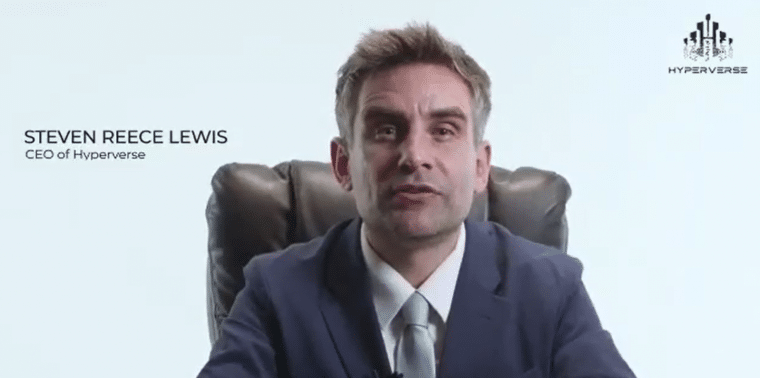Scams, especially those in the cryptocurrency sphere, seem to keep getting better and better at siphoning millions and sometimes even billions of dollars from unsuspecting victims. The founders of HyperFund, an alleged $1.7 billion crypto Ponzi scheme, are the perfect example. While they weren’t smart enough to not be caught and charged by the SEC for their alleged crimes, the lengths they took to scam innocent people would almost be impressive if they weren’t so egregious.
HyperFund attracted investors worldwide with false promises of massive assured returns from crypto mining, an “upcoming Hong Kong IPO,” and other schemes. Yet it turns out that it (allegedly) actually had no way of bringing in revenue to pay out these returns, only using new deposits to cover withdrawals.
The Department of Justice announced criminal charges on Monday against Australian citizen Sam Lee, who resides in Dubai, and American promoter Brenda “Bitcoin Beautee” Chunga.
Lee and Chunga also face civil charges from the Securities and Exchange Commission (SEC) for defrauding investors out of over $1.7 billion through the multi-level marketing scam, that was marketed under shifting brand names like HyperTech, HyperCapital, and HyperVerse.
A Brazen Fraud Fueled by Fake Crypto Riches
According to regulators, the HyperFund operated between June 2020 and May 2022, promising investors daily returns ranging from 0.5% to 1% by purportedly engaging in profitable bitcoin mining and other crypto-related activities. This should have been a red flag to financially literate people but such promises can be so enticing that they overwhelm their suspicions.
HyperFund’s founders and promoters like Chunga touted fake evidence of mining profits that allegedly funded investor payouts, including screenshots of faked media interviews and even documentary footage. The DOJ alleges that these crypto earnings claims were outright fabrications, asserting that the HyperFund generated no meaningful revenue aside from the funds it received from investors.
“HyperFund, however, was a pyramid and Ponzi scheme. HyperFund had no real source of revenue other than funds received from investors, and Defendants had no basis for the promised returns”, the SEC case document reads.
Without real profits, the HyperFund relied on cash from new sign-ups to pay earlier investors in what is considered a classic Ponzi scheme. However, the scam unraveled when outside money dried up and investors were unable to make withdrawals last year.
Chunga and Lee Hired an Actor to Pose as CEO of HyperFund

HyperFund’s founders and promoters went to extreme lengths to propagate the scam, utilizing various schemes and slick marketing ploys to entice victims into depositing their money, the legal complaint reveals.
The SEC accused the company of hiring a Thailand-based actor to pose as the project’s fake CEO “Steven Reece Lewis” and deliver a keynote speech at a 2021 rebranding event for HyperVerse. The HyperFund also presented potential investors with misleading claims of an imminent Hong Kong IPO and opportunities to invest in pre-IPO digital tokens at steep 20-30% discounts.

According to the SEC complaint, promoter Chunga focused on whipping up FOMO (fear of missing out) among her followers online. Dubbed “Bitcoin Beautee,” Chunga held seminars and created videos emphasizing how much money participants could make in rewards and referral bonuses by signing up and convincing family and friends to join as well.
Chunga earned over $3.7 million from her recruiting efforts in less than a year and gained HyperFund’s highest promoter status. The DOJ and SEC said she funneled these illicit earnings into luxury home purchases, cars, designer goods, and crypto wallets rather than legitimate business activities.
Founders Propped Up Other Ventures Using Stolen Funds
While average investors faced financial ruin, regulators painted HyperFund’s founders as attempting to prop up other business ventures with their ill-gotten gains. The SEC accused Lee of draining $140,000 into a crypto wallet under his control.
Lee also co-founded Australian crypto firm Blockchain Global, which collapsed, owing creditors $58 million in 2021 per The Guardian. His partner in both Blockchain Global and HyperTech, Ryan Xu, is also facing legal scrutiny amid the collapse of his firm in Australia, which owes nearly $60 million to creditors.
Authorities described the brazen HyperFund fraud as the latest embodiment of persistent unlawful practices in the cryptocurrency arena. “The level of alleged fraud here is staggering”, stated US Attorney Erek Barron on the DOJ’s indictment, which charges Lee and Chunga with conspiracy to commit securities and wire fraud.
Chunga already pled guilty to one count of conspiracy to commit securities fraud. She and his partner Lee face up to 5 years of imprisonment for these crimes.
Harsh Penalties Are Being Imposed to Dissuade Crypto Scammers
As digital asset schemes continue proliferating globally, regulators are pursuing stern civil and criminal penalties against perpetrators to discourage imitators.
An FBI report released in March last year indicated that, in 2022, crypto investment scams took $3.31 billion out of investors’ pockets. This represented a 127% jump compared to 2021 figures. Most of the incidents involved a scheme called ‘liquidity mining’ that consists of obtaining investors’ private keys to access and drain their crypto wallets.
Also read: Popular Online Pastor Caught in Massive Crypto Scam, Says God Told Him to Do It (Literally)
Another promoter of the project, Rodney Burton, received additional charges for illegally transmitting funds related to the scam. The SEC will determine if further fines will apply to Chunga and Lee during the forthcoming court proceedings. More broadly, the SEC seeks to ban the duo from participating in other multi-level marketing or crypto ventures.
While HyperFund’s victims are unlikely to receive full restitution, authorities hope that the punitive measures will send a strong warning to anyone considering to device similar crypto investment scams.
With prospective returns in the space remaining murky at best, fraud watchdogs advise investors to stay alert to the same “too good to be true” warning signs that have enabled unlawful schemes to siphon funds from unwary market participants for decades. Always do your research whenever considering any kind of investment or deposit to make sure you aren’t the next victim of these horrible scammers.
